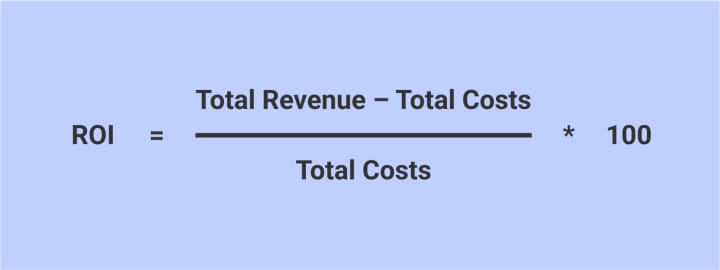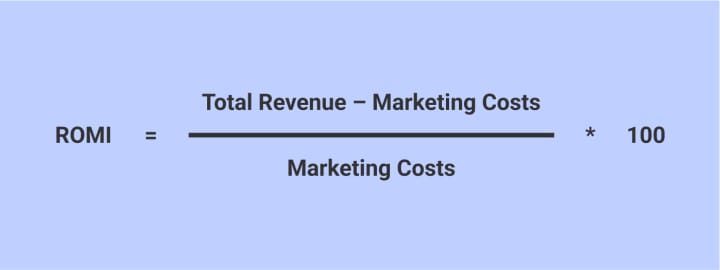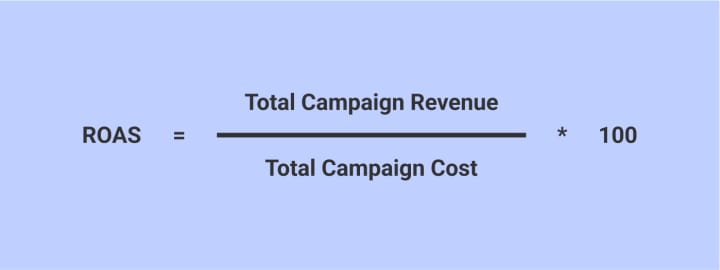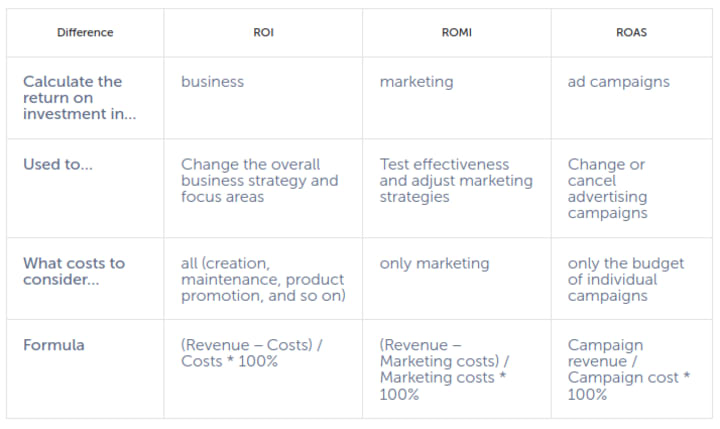
If your company only invests money in development, but does not earn it, that’s definitely something to think about. ROAS, ROI, ROMI metrics are used to evaluate the effectiveness of investments in business and individual areas of work and, as a result, to see the weak spots and make the right decisions to change the strategy.
Each metric is suitable for a different degree of company overview. ROI is a complete assessment of the success of investments; it takes into account all revenues and expenses. ROMI is calculated when working with marketing. ROAS is used for individual advertising campaigns.
Metrics are often confused, so in this post we are going to figure out what they mean, how they differ, and why each is needed. We will also tell you how to calculate ROAS, ROI and ROMI correctly.
What is ROI
Return on Investment, or ROI is used to understand how much is earned from each dollar invested. The ROI formula takes into account the costs of creating, maintaining, and promoting a product. This includes the cost of purchasing materials, salaries, the budget for advertising campaigns, etc.
Why and how to calculate ROI
The calculation of ROI is important for assessing the profitability of your business: whether investments pay off and whether there is a profit from them. When the ROI is low, the decision is made to close unprofitable projects or change the marketing strategy and the entire direction of the company’s development. ROI saves you from wasting your budget and tells where to invest money to get a better result.
ROI formula (%):

ROI is calculated for a certain period, but during this period there should not be a dramatic change in circumstances, such as price hikes, new suppliers, and so on. In the formula, revenue is the money earned by the company. Costs include all investments made.
Also, the time interval for calculation depends on the sales cycle length.
What is a good ROI? Usually a result above 0% means that you have made a profit. Below that figure means the business is losing money. Exactly 0% ROI means that the business has paid off the investment, but has not earned anything.
Example. In September, a sportswear store spent 10,000 dollars to update its clothing collection, paid employees 5,000 dollars in salary, and bought advertising for 3,000 dollars. This month, the store’s sales amounted to 22,000 dollars. ROI = (22000–18000)/18000=22%. This is not a high value, but at the same time, the costs paid off in full, and the store’s activities in September made a profit.
How to increase ROI
- Check the effectiveness of marketing channels and disable or adjust those that bring low results.
- Work with your target audience. It is possible that low quality leads are coming in because you are addressing the wrong people in your ads.
- Connect sales and marketing if there is inconsistency or problems getting information to another department. Sometimes a successful advertising campaign comes to naught if the sales team does not handle leads the right way.
- Revise your business goals and make sure they are realistic. Exaggerated plans will not bring results if there are not enough resources.
What is ROMI
Return on Marketing Investment, or ROI is used to understand how much is earned from every dollar invested in marketing. Marketing expenses include the costs of advertising, promotions, events and other marketing activities. It can also be calculated for individual channels, such as messenger or email campaigns, contextual advertising, and so on.
Why and how to calculate ROMI
The metric is important for evaluating the effectiveness of promotion. ROMI gives businesses a broader view of marketing. If you evaluate the superficial result (the number of clicks, applications, etc.), you can decide that the campaigns are successful. However, after calculating the return on investment, it turns out that you spend more money on marketing than you earn from it.
ROMI formula:

Example. The company spent 3,100 dollars on contextual advertising, 1,000 dollars on email campaigns, and 900 dollars on influencers to promote products. In the current month, the company’s income amounted to 4,500 dollars. ROMI is (4500–5000)/5000= –10%.
What is a good ROMI? More than 0% means that the investment pays off. Less than 0% — costs exceed revenue. 0% shows that investments go «to zero». In the example above, the investment does not recoup the costs.
How to increase ROMI
- Make it easier for users to buy. Remove unnecessary steps in advertising and on the site. Don’t force interested leads to fill out dozens of fields and confirmations. Let them reach the “Buy” button faster.
- Check the effectiveness of channels and individual advertising campaigns. Don’t invest in things that don’t work. Always look for ways to optimize your advertising and website — test hypotheses and reject unsuccessful solutions. Invest more in high-priority channels that generate revenue.
What is ROAS
Return on Ad Spend, or ROAS is a measure of the return on investment a business spends on advertising. It is used to check how much money has returned from investments in individual ad campaigns or channels. The ROAS formula includes advertising revenue (due to customers who saw the ad, clicked on the link and bought) and campaign costs (usually the cost of advertising on sites and excluding the work of a specialist).
Why and how to calculate ROAS
ROAS is a metric that shows the effectiveness of a particular advertising campaign or promotion channel. You can evaluate individual strategies and techniques to eliminate unsuccessful ones and allocate a larger budget for successful ones. Thus, ROAS is needed to make decisions on specific marketing actions, but not on the entire strategy, as ROMI.
ROAS formula:

The total metric for a campaign or individual ads is calculated.
Example. The online store launched a Facebook advertising campaign and sent out an email campaign. Facebook advertising expenses amounted to 1,000 dollars, and the revenue received was 1,800 dollars. The email campaigns cost the company 300 dollars, and the revenue was 1,200 dollars. The ROAS of an advertising campaign on Facebook is 1800/1000=180%. And the ROAS of email campaigns is 1200/300=400%. Perhaps the company should increase the investment in email marketing, since it brings more profit for every dollar invested in advertising.
What is a good ROAS? The calculation is different from ROI and ROMI. ROAS is considered good if its value is above 100%. Otherwise, investments in advertising do not pay off.
How to increase ROAS
- Change creatives and offers of advertising campaigns that are not performing well. Check them out through testing.
- Drop the channels that bring insignificant results.
- Find weaknesses in the sales funnel and work out the places where leads are lost.
- Check the effectiveness of the site: clarity, speed, accessibility, etc.
The difference between ROI, ROMI and ROAS
The metrics are similar, but differ in scale. Some show the business globally, others in more detail. Let’s compare them in the table.

Key points when working with ROI, ROMI and ROAS
- Consider the context of the metrics. Pay attention to the circumstances (market conditions) and don’t look at metrics in isolation.
- Collect accurate and complete data for the right analytics. Choose a convenient system for data management.
- Correctly determine the calculation period, which depends on the duration of the sale. The longer the deal, the longer the time span.
Conclusion
ROAS, ROI, ROMI are metrics that help to understand the effectiveness of investments in a business: whether the money spent on its development pays off. ROI refers to more global and general metrics. It takes into account the return on investment after calculating all investments made (from the cost of producing to advertising). ROMI shows the effectiveness of marketing investments. ROAS is responsible for the return on investment of individual advertising campaigns.
Metrics give a hint what to change in the work of the company. ROI is needed to adjust overall strategies. ROMI is calculated to adjust marketing strategies. ROAS answers the question of what to do with specific ads, newsletters, and other campaigns.
It is important to consider all metrics in context with other business data and use analytics systems.
The article was originally published here.
About the Creator
Altcraft
Interesting and useful articles about marketing, our product and online communications






Comments
There are no comments for this story
Be the first to respond and start the conversation.